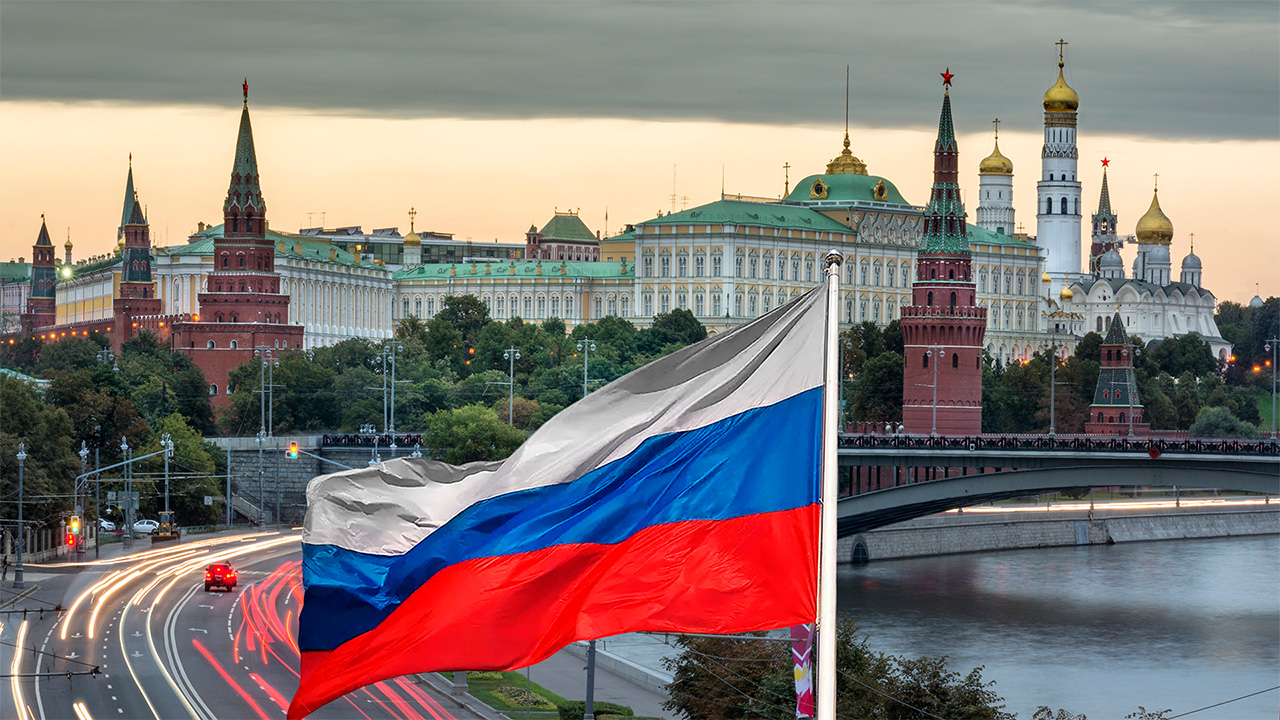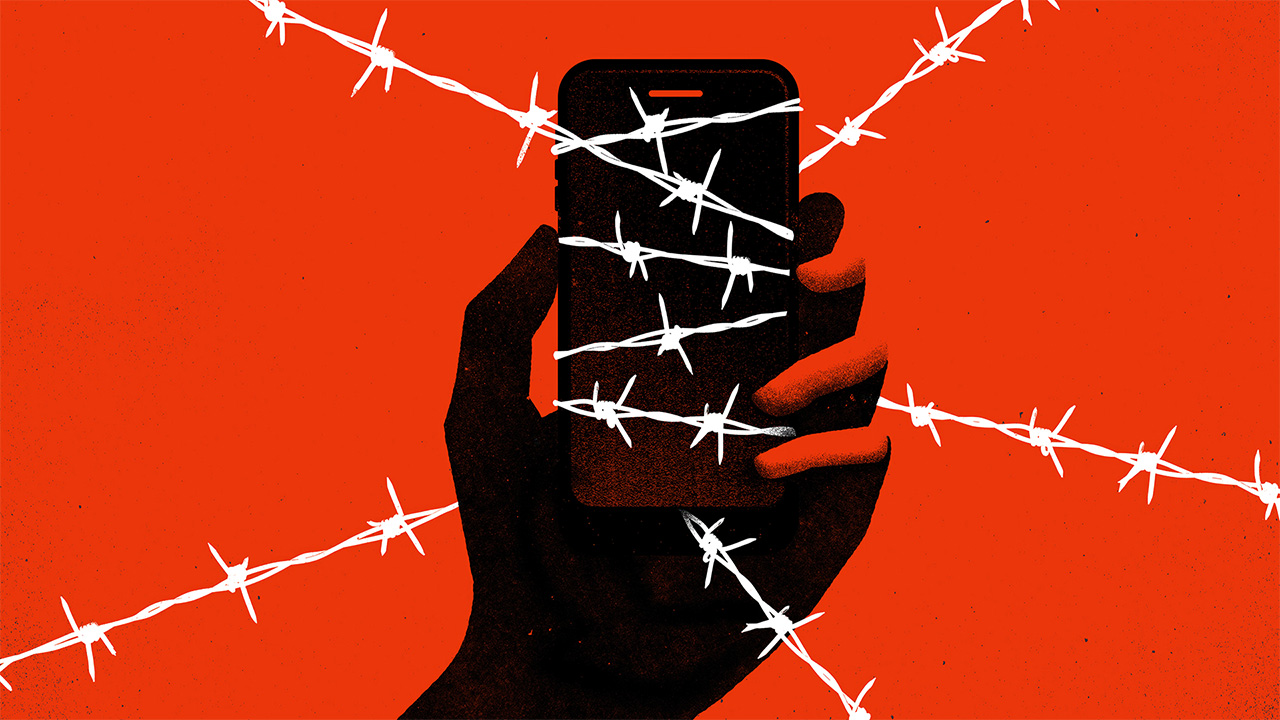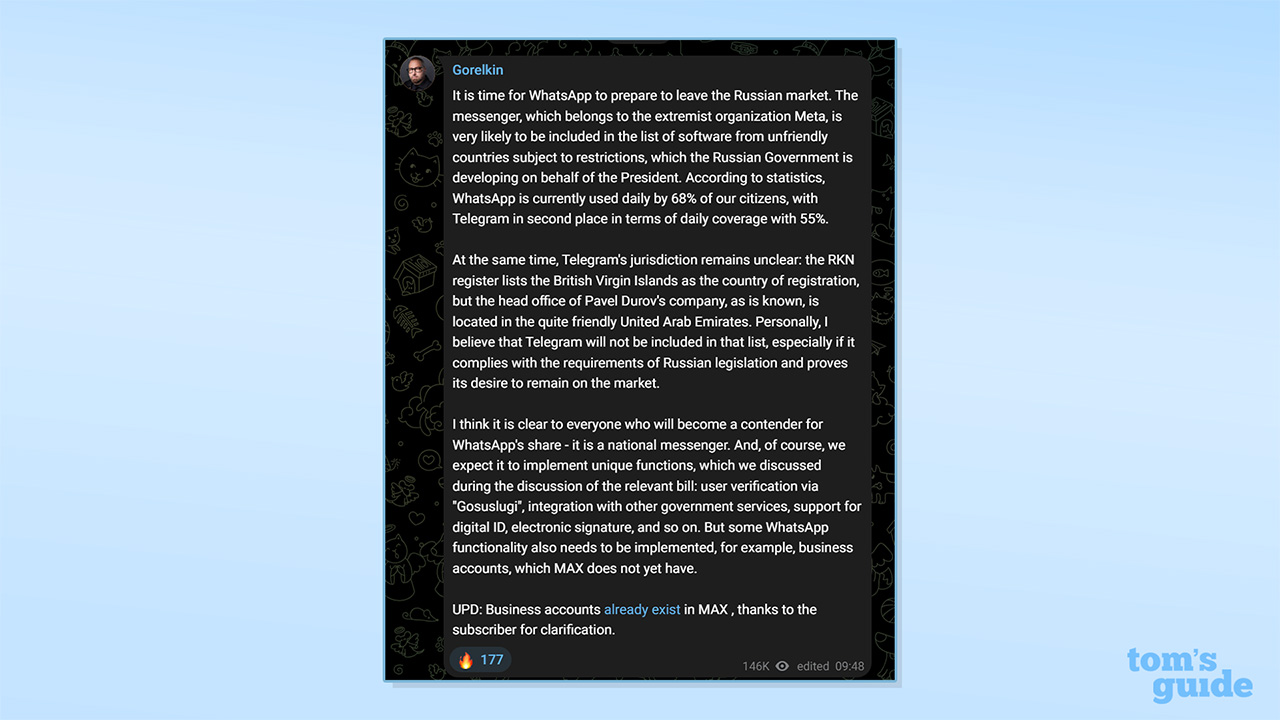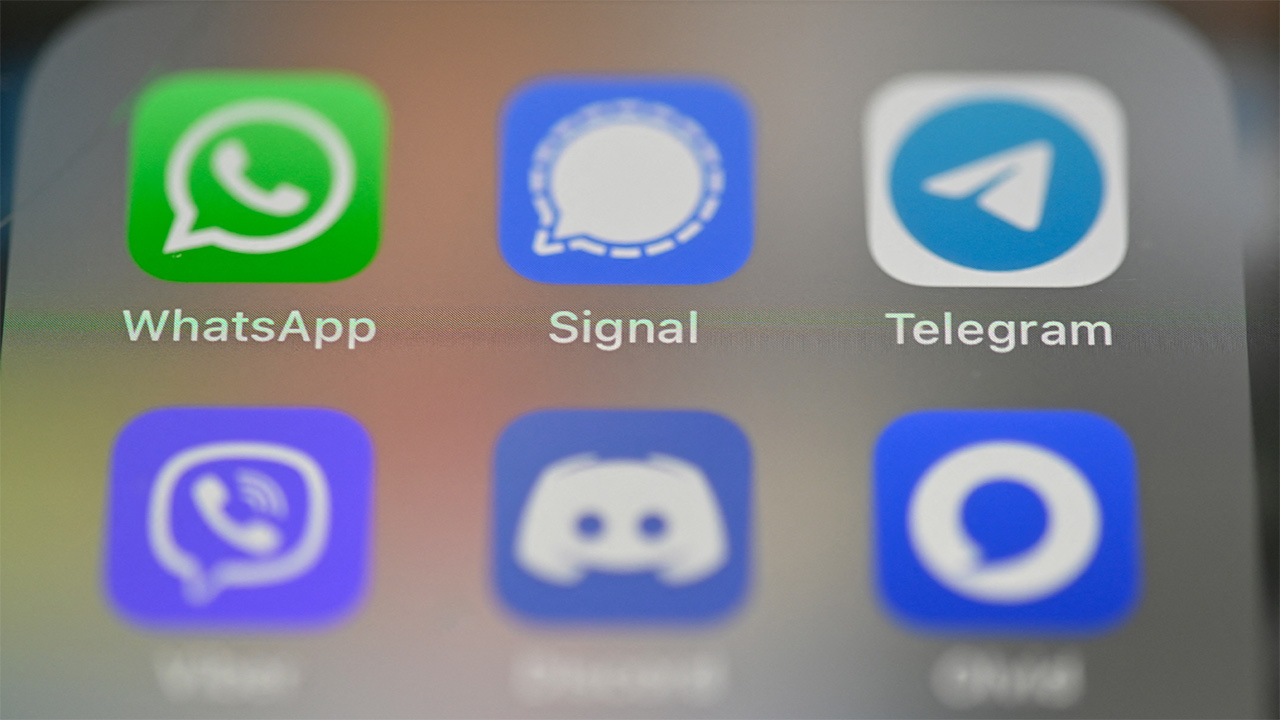Russia passes restrictive VPN law and sets its sights on a WhatsApp ban
The government is tightening its control over internet freedom

The Russian government has passed a law criminalizing the searching of "extremist materials" online.
The legislation prohibits accessing this content via the best VPNs, and also includes fines for advertising VPN services.
This move comes days after we reported the bill's second reading in the State Duma and Russian newspapers warned "risks will grow" for VPN users.
VPNs haven't been banned outright, but their use in Russia now comes with additional risk. The best Russia VPNs can still be used to bypass the country's sophisticated internet restrictions.
However, if you're visiting the country, it's important to ensure these apps are downloaded and installed before you get there.
Alongside its ongoing assault on VPNs, Russia is looking to block WhatsApp in a bid to exercise even more control over the online freedoms and digital privacy of Russians.

VPN restrictions
Russian lawmakers passed this legislation after its third and final reading. Reports suggest it was supported by 306 deputies, while 67 voted against and 22 abstained.
As mentioned in our previous article covering this bill, fines of up to 500,000 rubles (~ $6,300) may be handed out for advertising VPNs.
Intentionally searching for "extremist materials" could land you a fine of between 1,000 and 3,000 and 5,000 rubles (~$38 to ~$64).
Individuals found to be advertising VPN usage could see fines up to 80,000 rubes (~$1,000). Fines can be up to 150,000 rubles (~$1,900) for officials and up to 500,000 rubles (~$6,300) for legal entities.
As reported by Interfax, Minister of Digital Development, Communications and Mass Media Maksut Shadayev said "ordinary users will not be affected." However, we're struggling to see how this could be the case and caution should still be exercised.
WhatsApp in the firing line
As per reports, sources within the Kremlin are suggesting it's highly likely WhatsApp will be blocked in Russia.
Almost 100 million rely on the app to communicate but lawmaker Anton Gorelkin said "it's time for WhatsApp to prepare to leave the Russian market."

President Putin signed a law to develop state-backed messaging apps, with the goal of reducing the reliance on WhatsApp and Telegram. According to Gorelkin, 68% of Russians use WhatsApp and 55% use Telegram.
Gorelkin called Meta, which owns WhatsApp, an "extremist organization" and said it "is very likely to be included in the list of software from unfriendly countries subject to restrictions."
However he personally believed that Telegram would not be included on the list.
He said there will be contenders for WhatsApp's market share. MAX is a state-backed messaging app that could be one of those contenders.
WhatsApp, along with Telegram, has traditionally been considered one of the best encrypted messaging apps, but both have privacy concerns.
WhatsApp has recently introduced ads into part of its app and there are serious concerns about data sharing across Meta apps.

Telegram is a very popular WhatsApp alternative but it isn't encrypted by default and there are more secure, although not as popular, alternatives. These apps include Signal, Threema, and Session.
If WhatsApp is banned or and/or blocked in Russia, using a VPN will be the only way of accessing it.
The stakes for individuals, journalists, activists, and privacy advocates in Russia are rising, and we will not see cases of censorship in the country going away.
These restrictions must be opposed and despite being targeted, VPNs and encrypted messaging apps are a crucial lifeline.
We test and review VPN services in the context of legal recreational uses. For example: 1. Accessing a service from another country (subject to the terms and conditions of that service). 2. Protecting your online security and strengthening your online privacy when abroad. We do not support or condone the illegal or malicious use of VPN services. Consuming pirated content that is paid-for is neither endorsed nor approved by Future Publishing.

George is a Staff Writer at Tom's Guide, covering VPN, privacy, and cybersecurity news. He is especially interested in digital rights and censorship, and its interplay with politics. Outside of work, George is passionate about music, Star Wars, and Karate.
You must confirm your public display name before commenting
Please logout and then login again, you will then be prompted to enter your display name.
 Club Benefits
Club Benefits





